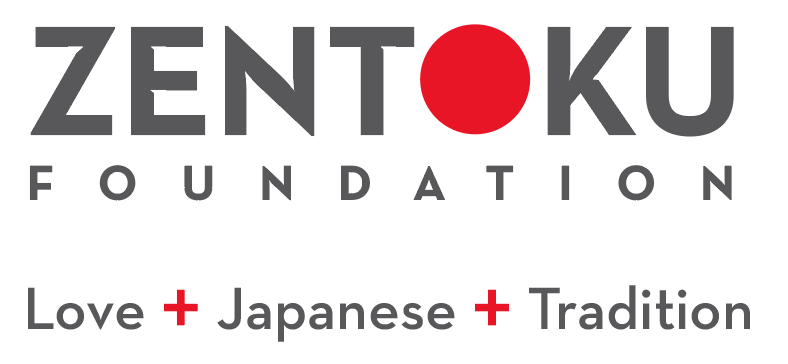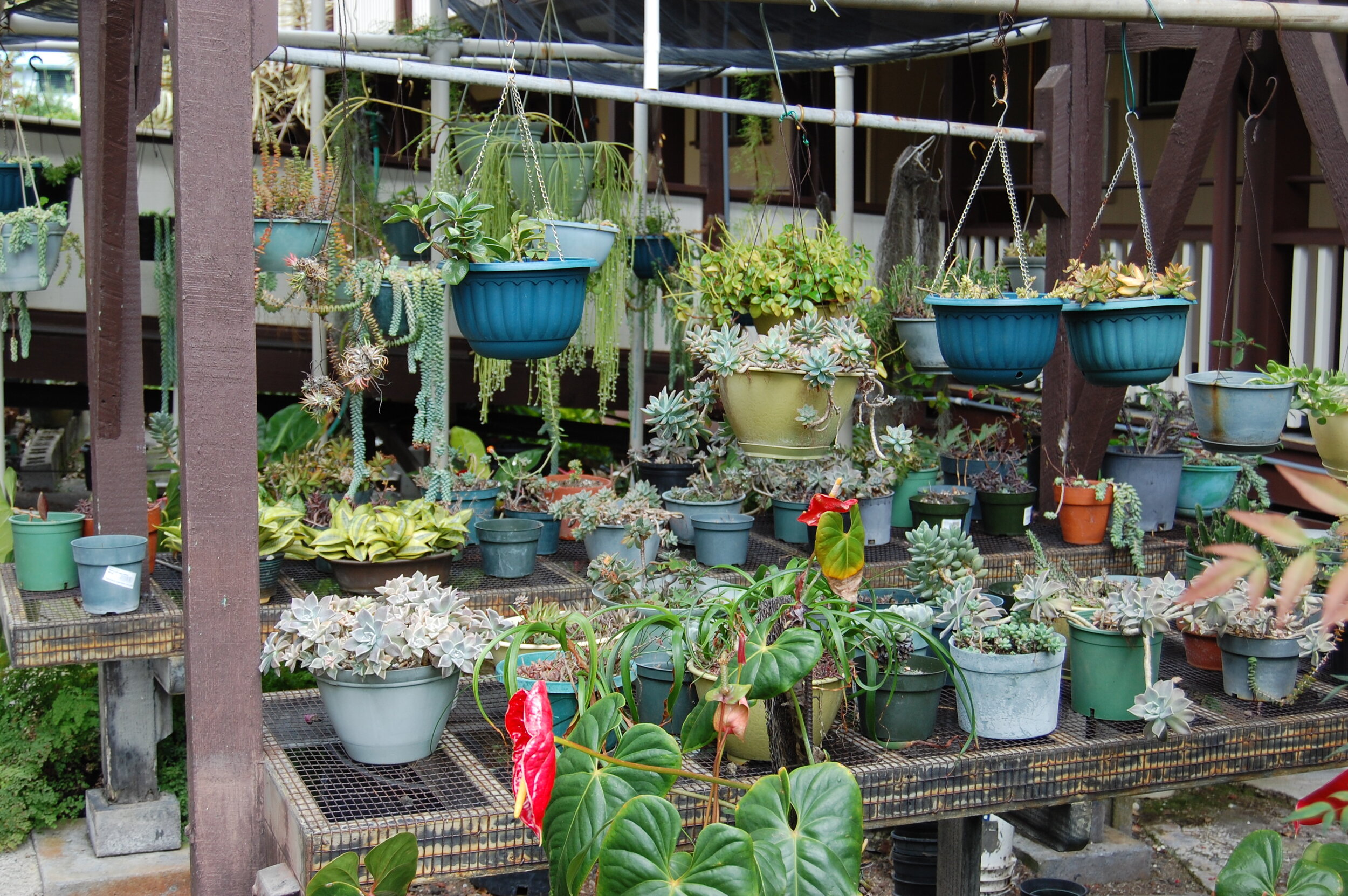The Manago Hotel:
A Legacy Built on Issei Values and Pork Chops
By JODIE CHIEMI CHING
The legacy of the Manago Hotel goes far beyond the nostalgia of “Old Hawai’i” and their world famous pork chops. Ask any of the Manago family members who manage the hotel or their employees. It’s the values of the Issei (first generation) immigrants and the aloha spirit that have kept the doors open for over a century.
Walk through the front doors of the Manago Hotel, and you are transported back in time. The sturdy wooden front desk and portraits of Issei Kinzo and Osame Manago welcome guests of the hotel. And depending on what time of day you arrive, you might catch a whiff of their juicy pork chops.
Manago Hotel is located in Captain Cook on Hawai’i Island, and overlooks Kealakekua Bay and the Pu‘uhonua O Hönaunau National Historical Park, also known as a Place of Refuge. Travelers and Hawai‘i’s locals go to the hotel to escape the 21st century.
When I went to write this story I felt like I was at my Grandpa Charlie and Grandma Ruby’s house in Palolo Valley, even though I was in Kona. I sat at the same kind of Formica tables my grandparents had. I didn’t even need to look at a menu because I knew I had to order the pork chops. But before the main course arrived, we started with macaroni salad and ogo namasu. That was the first time I have ever been served ogo namasu in a restaurant. I’m sure I had that given to me in a jar by a cousin, or at a family gathering, but never served as a side dish in a restaurant. It really felt like “home.”
Sansei (third generation) Dwight Manago and his wife, Cheryl, continue to perpetuate the values of a legacy that have extended beyond the walls of the Manago Hotel, out to the Big Island community, and into the world. From Issei to Yonsei (fourth generation), the Manago’s exemplify a number of Japanese values that they have passed on to their daughters Britney and Taryn. Today, the Yonsei sisters are actively involved with the management of the hotel. They have two other siblings: Brandon who is the eldest and lives with his wife and children in Seattle, Washington, and Kimberly who is the middle of the sisters and lives in Bakersfield, California with her husband.
Gambari and Gaman – Persistance and Endurance
Kinzo and Osame
Osame came to Hawai‘i from Fukuoka as a picture bride for Kinzo Manago in 1913. According to the online Densho Encyclopedia, she met him at the Immigration Station and shortly after they were married at Izumo Taisha, a Shintö shrine located in downtown Honolulu. The Managos soon left for Kona where Kinzo worked as a cook for the Wallace family.
Osame did additional jobs to supplement the family income, including picking up horse dung, embroidering linens and sorting coffee beans for the Captain Cook Coffee Mill. Mr. Wallace encouraged Kinzo to open a coffee shop and loaned him a hundred dollars to buy supplies. They purchased a home in Captain Cook, which also became a place of business and sold bread, udon and coffee to the community. The Managos became more established and expanded their business. Drivers who accompanied business men staying at the Paris Hotel, would eat at their shop and asked if they could stay the night for an affordable price. Osame let the drivers stay in the extra space, on futons at first, and later on single beds. That was the beginning of the Manago Hotel in 1917.
To accommodate the demand for rooms, they built a second floor. They started to host meetings and opened a restaurant. According to Nisei (second generation) son Harold Manago (Dwight’s father), it was his mother, Osame, that was the driving force behind the hotel. She never got sick and worked from sunrise until about 10 p.m. She brought her children up unspoiled. They were expected to pick coffee, cut firewood, help with laundry, ironing and cleaning. Everyone helped run the hotel to support the family.
Second floor view
During World War II The Managos had to close their hotel to the public. Soldiers began to patronize the hotel while they were stationed in Hawai‘i when they were off duty. Osame befriended the Military Police when the military began to arrive in Kona. This ensured that the troops would be on their best behavior with the Military Police around.
“My grandma was good at ho’omalimali (being charismatic),” said Dwight.
This resulted in a contract for the Managos to feed the troops which helped the business flourish, even long after the war ended.
Gisei – Sacrifice
According to a Jan.-Feb. 2015 article in Ke Ola, Hawai’i Island’s Community Magazine, entitled “Where Time Stands Still: The Manago Hotel” in 1929, Osame’s father asked to see his grandchildren. With their savings they were able to travel to Japan and planned a three-month stay. They took six of their eight children, aged seven months to 14 years old. However, after a month, they received a letter stating a new hotel was being built next door and that it would take all their business way.
When it was time for Kinzo and Osame to return to Hawai’i from Japan, Osame’s mother hid one of the children, a baby boy. Osame looked all over for her son, in the end she let her mother keep the baby. You see, Osame’s parents only had girls. They were always sad that they did not have a boy to carry on the family name.
When the Managos returned to Kona, the hotel next door was up and running. They borrowed money from the bank and hired a contractor to expand the hotel. In 1929, the addition enlarged the capacity to 22 rooms, a shared bath, a hotel lobby and restaurant. Then came another challenge.
When the wholesale price of coffee dropped, the hotel’s business was affected. Kinzo took a day job in Nāpo‘opo‘o and did laundry at night. The older children helped with chores and earned money by picking coffee.
Eventually the hotel was in the black again until the attack on Pearl Harbor in 1941. Kinzo and Osame’s son, Harold, was a student studying accounting and real estate at the University of Hawai’i at Mānoa on O’ahu. The school closed and Harold returned to Kona. As soon as Harold arrived at the hotel, his father was waiting for him outside. He told Harold that he had no choice but to take over the hotel and that the hotel needed to be put under Harold’s American born name. They needed to protect the family business and the hotel from possible property confiscation in case of their internment.
In 1943, Harold enlisted to serve in the military during World War II. His wife, Nancy, ran the hotel operations during his absence. In each generation, it was the women who carried the family and the hotel forward. Harold’s brothers, Takashi and Harry Manago, also enlisted. Takashi served in the 442nd Combat Team.
Kansha — Gratitude
Dwight took an emotional pause when he recalled a time his grandmother, Osame, said with tears in her eyes, “You have to take over the hotel.” At that time, Dwight was in the 9th grade.
“I’m willing to try," he replied, without really knowing what was involved in the promise he had made.
Manago Hotel, 1917
Dwight spent his high school years at Mid-Pacific Institute, a boarding prep school on O‘ahu. “I had the best education they could afford,” he said. The family made sacrifices so all five children — Dwight, Merwyn, Randall, Elaine and Sherre — could get ahead in life.
Dwight earned his business management degree at the University of Hawai’i at Mānoa and learned about food and beverage at the then-Kahala Hilton and Hawaiian Regent in Waikiki in the early ‘80s. Then he returned to the Big Island to work as the food and beverage director at the Mauna Lani Bay Hotel and Bungalows. He worked there for just two months, when his father decided to retire. Dwight agreed to manage his family’s hotel if his father would hand over complete control of the operations.
Harold’s only request to his son was that he would get to keep his bar so he could still hang out with the regulars. Father and son agreed. Dwight laughed and said, “His tongue must have been bitten about a hundred times.”
When he came back he had big ideas to make the hotel “better.” He wanted to install televisions in every room. But the community wouldn’t have it. Guests told him “If you change anything, we’re not coming back,” said Dwight.
Dwight’s wife, Cheryl, moved from Honolulu to work at the hotel. They had met while working together at the Hawaiian Regent Hotel. Their daughter, Taryn, was born in Honolulu before they moved to Kona. Cheryl missed her family and so it was nice to have her sisters around her when they later moved to Kona from Honolulu. Cheryl’s younger sister, Cathleen, joined them in managing the hotel, and the other sister, Cindy, opened Kona Chips with her husband, Jerome Furukawa, next door.
Dwight and Cheryl value the employees of the hotel. Several of their employees have worked for the family for decades. It is not unusual for workers to offer to work extra hours when the hotel is fully booked.
Dwight believes that their business is still in existence because his family and his staff care for one another and their guests. “I observed my mom and how she treated people,” said Dwight.
Dwight extends his gratitude and service out into the community. He has been volunteering as chairman of the board at Hawaii Community Federal Credit Union for seven years. Cheryl said, “He’s the kind of person that takes care of everybody. He wants to take care of the workers and the community.”
Dwight said there were three major downturns in their business, with each one handing him a lesson. From these experiences, he learned to save when business was good, and to give back to the community, “Because [then,] they will continue to support you.” When times are hard, Dwight said, “That’s when you step up.”
Guests and people of the community are happy to reciprocate to the Managos. Cheryl also talked about how their longest guest became their employee as a nighttime security person.
Meiyo — Honor
Today, daughters, Britney and Taryn Manago have joined in the family business. While Britney took us on a tour of the hotel, it was obvious that she and her sister were proud to continue the legacy of the hotel. Britney recalled growing up in the hotel, “Grandpa used to work out at the front desk, taking reservations; Grandma was always in the kitchen helping. If she wasn’t in the kitchen, she was out in the garden, or she was folding laundry. Grandma was all over the place!”
Britney and Taryn Manago
Dwight has been making sure his girls are ready for succession. He teaches them about finances, how to save money and when to spend on improvements to the hotel. “The thing he wants us to understand is that the biggest reason why we are open, is because of our employees. So [we should] always treat our employees with respect and [know] that they are our extended family. We have girls who have been working here longer than I have been alive,” said Britney. She says the employees are the reason why the hotel has been a success for 102 years.
The Manago Hotel was built on the Issei’s persistence and endurance and sacrifices made by the Nisei generation, who went to battle during World War II. For this, the Sansei are grateful, and the Yonsei will honor their ancestors by sharing the stories and aloha, rooted in the values brought to Hawai’i by Issei, just like Kinzo and Osame.












